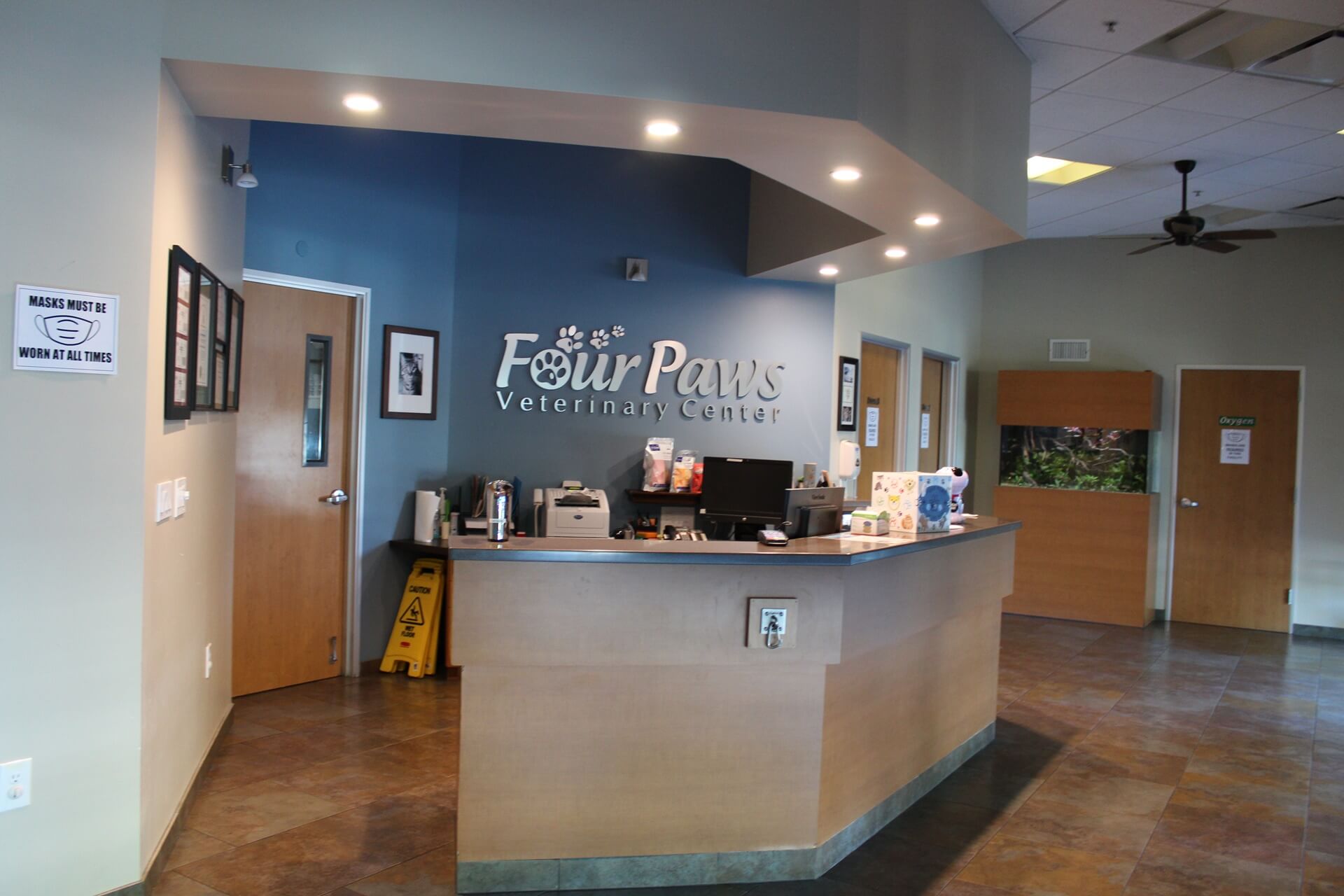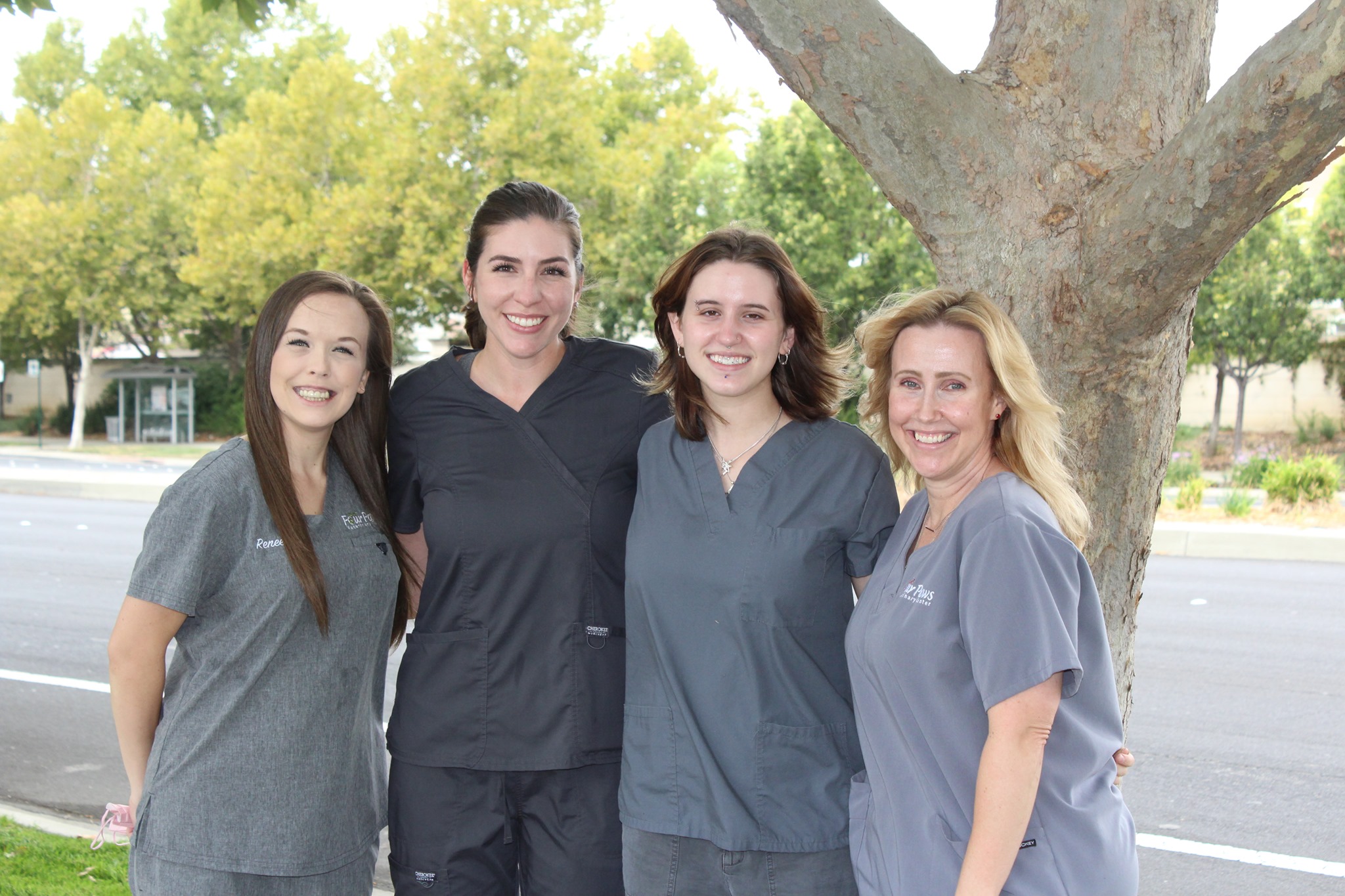Dublin, CA
Four Paws Veterinary Center
Welcome to Four Paws Veterinary Center. We are located at 4524 Dublin Boulevard in Dublin, CA, in the Dublin Corners Shopping Center; at the southeast corner of Dublin Boulevard and Toyota Drive. We are committed to providing all of your beloved pets with the highest quality, up-to-date veterinary care available.

About Four Paws Veterinary Center in Dublin
Four Paws Veterinary Center has been in the the Dublin, CA veterinary community since 2011. We are a modern, clean, full-service, small animal veterinary hospital providing comprehensive medical, surgical and dental care for cats and dogs. We provide a broad spectrum of diagnostic procedures through in-house testing and the use of external laboratories. We also work closely with local practices when special diagnostic procedures are required.
Complete Veterinary Care in Dublin CA
At Four Paws, we offer a wide range of veterinary services to maintain the health of your pet. We understand the complexity of certain illnesses and injuries. So, when indicated, we can partner with local veterinary specialists to ensure your pet receives the best healthcare possible. We simply want the best for your pet.
Pet Wellness
Pet Diagnostic Testing
Pet Surgery
Pet Dentistry
Our team goes above and beyond for our patients.
Our entire, well-educated, health care team is committed to providing the personal attention that you and your pets expect and deserve. We will go above and beyond to ensure that you understand every choice and decision you will make over the course of your pet’s life.


Our Online Pharmacy
Discover the convenience of our online pharmacy for your pet’s health needs! From prescription medications to premium pet care products, our virtual store ensures a seamless experience for all your veterinary hospital needs. Trust us to deliver quality, convenience, and care right to your doorstep, keeping your furry friends happy and healthy.

Thank you for your kind words.
Thank you for making Four Paws Veterinary Center one of the highest-rated veterinary hospitals in Dublin!
They were so nice to me and my little four legged little girl. I was very nervous to have her fixed, however they reassured me she would be fine after a few days. They called the next morning to make sure I didn’t have any issues or questions.
